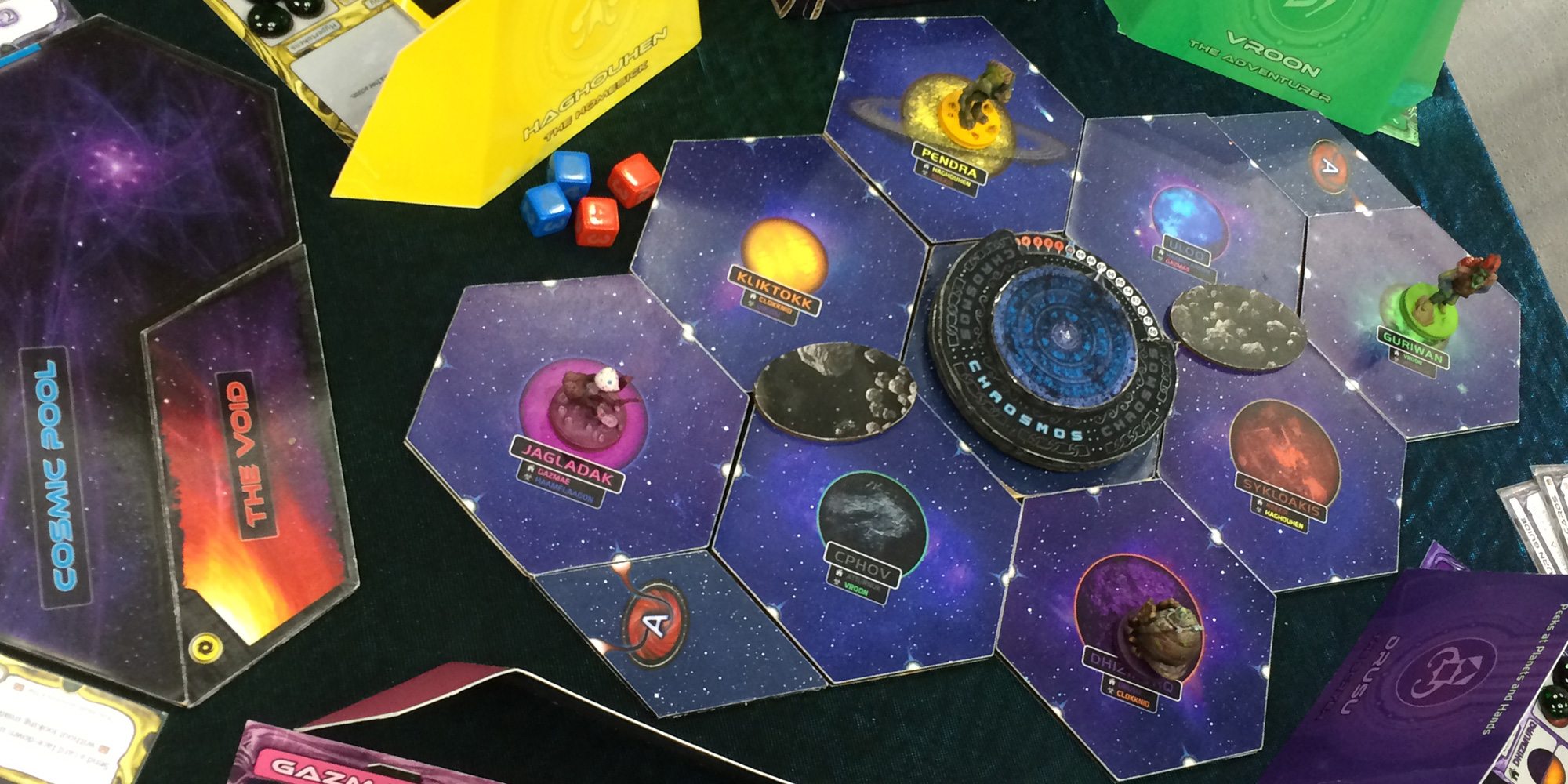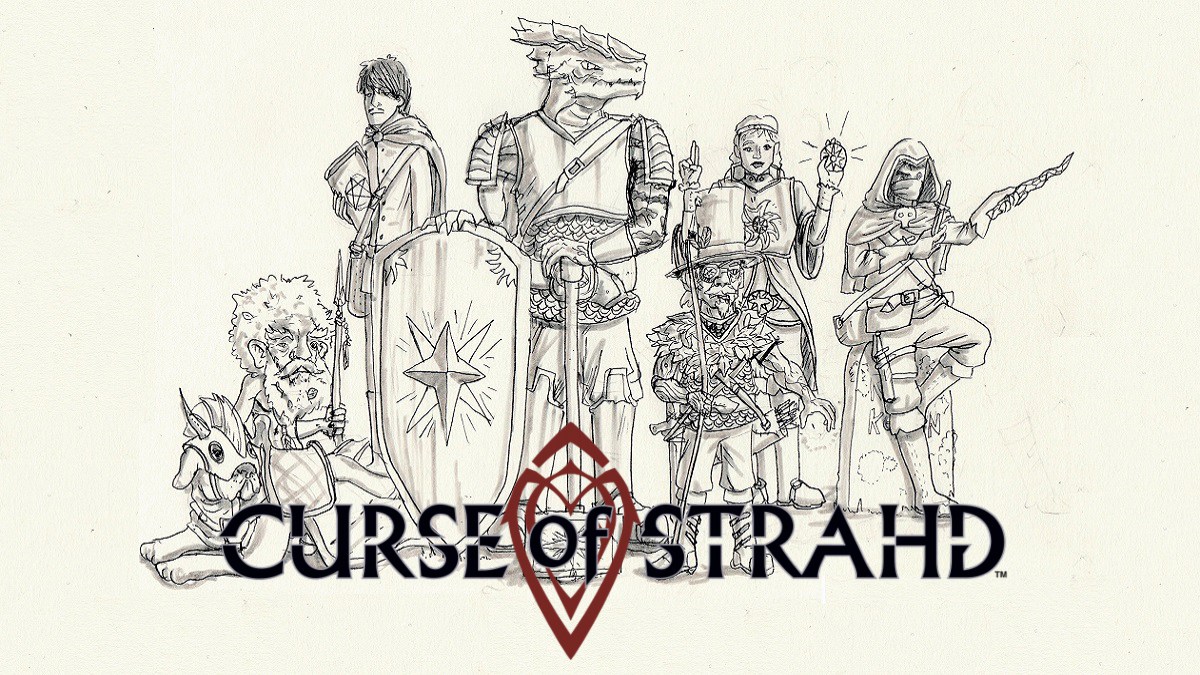A commenter on my Gen Con Kickstarter roundup asked how Gen Con has changed with the rise of Kickstarter-funded board games. The truth is, since this was only my second year, I’ve never known a Gen Con before Kickstarter. Certainly, though, there were a host of games I saw during the show that had been funded through Kickstarter, and it seemed like much more than last year (though I don’t have actual figures on that).
Just for kicks, here’s a list of Kickstarter-funded games that I saw in final (or nearly final) form at Gen Con. I’ll get to a little more analysis below, but you can see that it’s a huge list. Most of these debuted this year, though some of these were around last year. I’ve linked those that have been covered or mentioned on GeekDad before.
- Adventure Maximus
- Argent Consortium
- Chaosmos
- Conquest of Speros
- Damage Report
- Draco Magi
- Dwarven Forge
- EONS – Cosmic Expansions
- Epic Resort
- Euphoria
- Evolution
- Galaxy Defenders
- Give It to the King
- Golem Arcana
- Gone Viking
- Good Cop Bad Cop
- Good Help
- Heroes Wanted
- Incredibrawl
- King’s Forge
- Lagoon
- Magnum Opus
- Mega Monster City Smash
- Monster Derby
- Ninja Dice
- Pixel Glory
- Rarrr!!
- Roll For It
- Run Fight or Die
- Shadows of Brimstone
- Snafu
- Star Realms
- Stonehaven Miniatures
- Tuscany
- Upon a Fable
- Viticulture
- What’s He Building in There
- Worker Placement
- World Conquerors
- Zombie 15′
- Zombie Island
Keep in mind: these are just the games that I happened to see at Gen Con. I’m sure there were many that I missed.
As I said, it’s hard for me to pinpoint how different Gen Con is before and after Kickstarter, but my perspective as a gamer and reviewer is that it has had a tremendous effect on the tabletop games industry as a whole—and since Gen Con is the biggest gaming convention in North America, I’m sure the effects carry over.
What I’ve noticed as a reviewer is that many game designers and publishers have turned to Kickstarter, with more all the time. For game designers, it’s a way to publish your idea the way you want it—instead of pitching your idea to a publisher, who might take your core idea and completely retheme it, you get to pitch your idea straight to the consumers (who might take your core idea and suggest that you retheme it, but that’s a different story). For publishers, it can serve as a way to gauge interest so you can decide whether it’s worth investing the capital to publish a game. Or, for publishers who are already set on printing up a game anyway, it offsets the up-front costs and works as a preorder system. (I’ll note without commentary that there are many I’ve talked to who complain about this particular use of Kickstarter.)
There are a host of new game publishers that wouldn’t exist without Kickstarter—some have only one game in their catalogs; others have built up a loyal following and continue to use Kickstarter as the default platform for each game.
I think I was surprised a little by the sheer number of Kickstarter games from small publishers (say, a one- or two-person company) that had a dedicated booth at Gen Con. Booths aren’t cheap—I’ve talked to many people who didn’t rent a booth because it was simply too expensive. So for a small company with only one funded game to rent a booth, that’s a pretty big investment, particularly if the game wasn’t ready in time to sell at the show. I suppose time will tell if the cost of the booth pays off in future sales when the games are ready for retail.
Many traditional publishers have taken to Kickstarter in the past couple years. Days of Wonder used it for their Small World app and a deluxe collector’s edition of Small World, but their regular line up (including the 10th anniversary edition of Ticket to Ride and this year’s new Five Tribes) were published without any crowdfunding. Eagle/Gryphon Games has launched several Kickstarters over the past few years, some for reprints of older games and some for new game designs.
Of course, there are still plenty of board game publishers who aren’t using Kickstarter. Asmodee Games had one of the largest booths at the show, and they’re still doing things the traditional way. Fantasy Flight Games is another big publisher that always has so many buying customers that there’s a line to get into their booth—and they publish games with high-end components all own their own dime.
Finally, it’s worth mentioning that Kickstarter isn’t the only option for publishers who don’t have (or don’t wish to spend) the capital to print a game first and then get it to market. Greater Than Games, publisher of the very popular Sentinels of the Multiverse series, decided to skip Kickstarter this time around and go straight to their fans. (I mentioned it in a Kickstarter Tabletop Roundup.) It’s working: they’ve got just a couple days left in their pre-order campaign, and they’ve pre-sold over 3,500 copies already. I spoke briefly with Christopher Badell at Gen Con, and he said that running their own pre-order makes sense primarily because of the shipping: Kickstarter doesn’t allow you to automatically calculate shipping for different regions and keep a single pledge level for a title. So publishers are constantly creating either several reward levels for various types of shipping, or offering free (meaning subsidized) shipping—but either way, they’re often losing money on shipping, particularly internationally. With their own pre-order system, Greater Than Games can set a fixed price for the game itself, and figure out actual shipping costs based on where you are. The Kickstarter and Amazon fees were not the main reason for the switch, Badell explained.
Plaid Hat Games is a publisher that hasn’t run any Kickstarter campaigns, but has been using its own pre-order system with success. Their big Gen Con release was Dead of Winter, which had already generated a lot of buzz. I overheard that around 400-500 copies of the game sold out on the first day, but a lot of gamers pre-ordered it so they could get their copy as soon as possible. Colby Dauch builds up buzz through the Plaid Hat website by posting a lot of information about a game—similar to what you’d see as a Kickstarter update—well before its release, but instead of stretch goals and pleas for pledges, you just buy it or you don’t. Its publication doesn’t depend on hitting a specific target number.
If you’ve been attending Gen Con for a long time, I’d love to hear from you in the comments: do you feel the convention has changed significantly with the advent of Kickstarter? If so, for the better or worse?




Thank you for answering that. To me some of the enjoyment of discovering new games was lessened. I did see several new games still, and enjoyed my one day up there. I wouldn’t say the feeling of Gencon has significantly changed, but for me it emphasizes more now the desire to go and play more vs walk the showroom floor.
I wondered that—is the enjoyment lessened because there were a lot of games that you feel like have already been around for so long (between Kickstarter and actual release) or that there are fewer games you’re interested in? I spend most of my time walking the showroom floor, but then again I’m there to meet publishers and designers and talk to them.
I think it was just not having as much thrill of discovery…And I should have put this earlier but I did walk out having decided to go all 4 days next year and convince my wife to bring our son up for some events and visit Indy.
Jonathan – I have been attending Gen Con for 7 years now. The last three years as a publisher that got their start on Kickstarter. For me personally, Gen Con is A LOT of WORK now. The innocence has been lost, and my hobby is now a business. In some ways, this is sad. It is weeks between times when I sit down to just play a game for fun… when I do not have my analysis hat on, or evaluating and learning a new game. I have to say, I would not change a thing though. Yes, it is a lot of work. Yes, it does not pay the bills ‘yet’. And, yes, at times I wonder why I started Break From Reality Games. But then I think back to the last convention. That is all it takes. The number of fans, and new fans, the excited kids, the excited adults! They look at you with joyful eyes and glee in their voice in truly enjoying a gaming experience. That is what I work for now. That is why I do what I do. I am part of the show… my job is to make sure that others have a memorable, and enjoyable Gen Con. What an amazing privilege!
Gen Con this year was overwhelmingly larger than last year. It felt it. My team and I saw it. And we can’t wait for next year! Kickstarter is a major source of innovation and life blood in our industry. It is truly a disruptive force… and for the most part, a very good thing!
This was the first year that Gen Con was even on my radar. I read updates and watched youtube videos with my kids. Eager to see new reveals and get first hand reviews of games we backed on Kickstarter. While the con looks too big for my tastes, I love seeing the coverage and am considering finding a smaller and closer game con to attend.
I have no problem with any of the ways Kickstarter is being used. I think the backers are saavy enough to make any necessary course corrections if we feel companies are abusing Kickstarter.
But honestly, I would be fine even with a situation where a well established company did a Kickstarter for a re-release of a deluxe edition. They use KS to gauge interest and include stretch goals to make it even more deluxe.
It seems like we’re seeing a huge growth in the industry. A perfect storm of Wil Wheaton, Kickstarter, and really great games. This rapid growth will upset some and have casualties, but in the end all I know is that my FLGS just moved into a 7000 square foot new store, half of which is for tournaments, open gaming, and store demos and special events. One of my local comic shops just moved into the mall! It’s a great time to be a geek 🙂